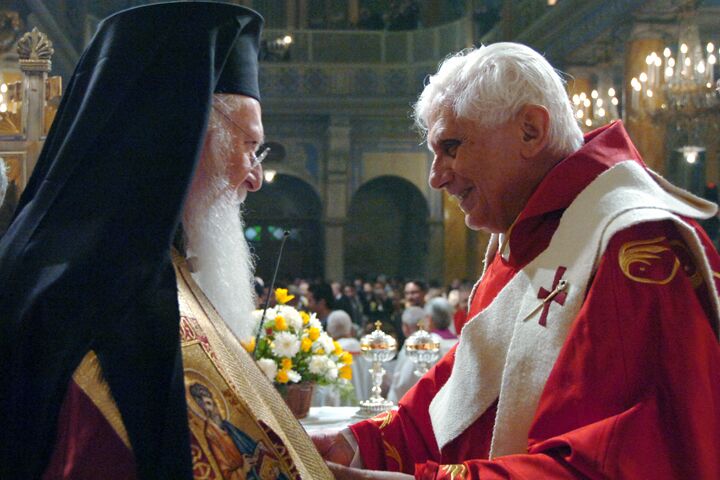
Vatican Takes Step to Reabsorb Orthodox Church
The Vatican has drafted a joint document with Orthodox Church leaders declaring that the pope has primacy over all Catholic and Orthodox bishops. The agreement was reached by a joint international commission in Revenna, Italy, on October 13 and released by the Vatican on Thursday.
The document specifically declares that the pope held the highest position in the unified church before the Great Schism in 1054, and that the bishop of Rome was the protos, or first, among the patriarchs, including those of Constantinople, Alexandria, Antioch and Jerusalem.
That acknowledgment could pave the way for eventual reunification of the two churches—under the pope’s rule.
Cardinal Water Kasper, head of the Pontifical Council for Promoting Christian Unity, called discussions of the pope’s power in the early Catholic Church the “real breakthrough” of the document.
“This document is a modest first step and as such one of hope,” he told Vatican Radio. “But we must not exaggerate its importance. This will not be easy. The road is very long and difficult.”
The Orthodox Church split with Rome in 1054, largely because of disagreements over the authority of the pope. Its 220 million members fall under the authority of autonomous national churches, rather than a universal ruler, the way 1.1 billion Roman Catholics do.
Although the two sides agreed on the primacy of the pre-1054 pope, they still disagree on what his authority entailed in terms of the power he could exercise. The early popes had much less consolidated and centralized power than their second-millennium counterparts have wielded. This will make for thornier deliberations, particularly when the dogma of papal infallibility, which the Catholic Church developed after the split and formally defined in 1870, is discussed. However, in the interest of ecumenicism, the commission has called for the role of the pope to be studied in greater depth.
Pope Benedict xvi has called regaining the Orthodox Church a priority of his administration. In May last year, a senior Russian Orthodox official delivered a message from Patriarch Alexiy ii to Benedict, and Vatican officials said they were working toward a meeting between the two. The same month, 50 Roman Catholic and Russian Orthodox officials held a meeting in Vienna.
In November last year, the pope met in Istanbul with Ecumenical Patriarch Bartholomew, who is considered the spiritual head of Eastern Orthodoxy.
Benedict is literally making a career out of re-acquiring Catholicism’s daughter churches. However, no matter what is on the table for discussion, one dogma will remain the same: Everybody obeys the pope.
As a result of these ecumenical maneuverings—resulting in Orthodox, Anglican and Protestant daughters being welded back into the universal church—look for papal authority not to weaken but to ultimately increase even further than it has already.
